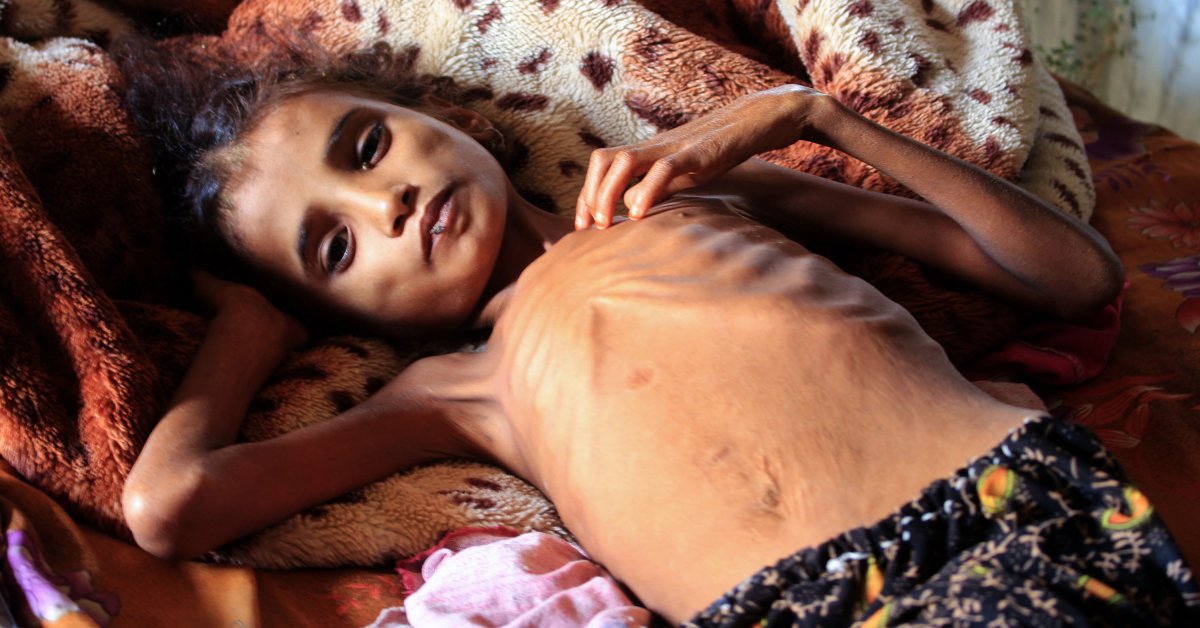[ad_1]
UNITED NATIONS — Conflict-torn Yemen “is falling off a cliff” and will face the worst famine the world has seen for decades unless donors, and especially its Gulf neighbors, contribute generously to this year’s U.N. humanitarian appeal for $3.85 billion, the U.N. humanitarian chief warned Wednesday.
Mark Lowcock said Gulf countries, especially Saudi Arabia and the United Arab Emirates, which contributed generously to U.N. appeals in 2018 and 2019, cut back drastically last year. This forced aid agencies to reduce the number of Yemenis receiving food and other humanitarian aid from 13-14 million every month in 2019 to just 9 million in 2020, he said.
The 4 million people who didn’t receive food last year “are among those essentially in the long, slow, brutal, painful, agonizing process of starving to death,” Lowcock told a virtual briefing for a group of reporters.
He spoke ahead of Monday’s pledging conference co-hosted by Sweden and Switzerland where Secretary-General Antonio Guterres will appeal for $3.85 billion.
“Without that funding, a lot more people will die, there could be catastrophic prospects unleashed in the country,” Lowcock warned. “Because of the state in the country now, where there (are) already pockets of famine, what we’re going to see is the worst famine the world has seen for decades. So, there is a lot at stake and there’s an urgency.”
The devastating conflict in the Arab world’s poorest country erupted in 2014, when Iranian-backed Houthi rebels seized Yemen’s capital, Sanaa, and much of the country’s north. That prompted a U.S.-backed Arab military coalition led by Saudi Arabia and the UAE to intervene months later in a bid to restore the government of Yemeni President Abed Rabu Mansour Hadi to power.
The conflict has killed some 130,000 people and spawned the world’s worst humanitarian disaster.
Lowcock said U.S. President Joe Biden’s new Yemen policy aimed at ending the six-year war and halting support for the coalition, and the way it has been welcomed especially by Saudi Arabia, “does create a major opportunity for peace and progress in Yemen.”
“That creates probably the biggest opportunity that we’ve seen since 2016 to find a resolution,” he said.
Lowcock said it’s now up to Yemen’s warring parties to take the opportunity and build a government that represents “everybody” and addresses the needs of the people including rebuilding the economy and restoring livelihoods for millions of people. If that happens, he said, that government will receive international support.
Lowcock stressed that in order to keep the situation in the country “stable” for the peace process to have a chance, the humanitarian situation must improve to where it was in 2019 when 13-14 million people per month were receiving food — and that requires $3.85 billion funding.
Last year’s $3.4 billion appeal received only about $1.8 billion, he said, with the U.N. receiving only $300 million of the %500 million that Saudi Arabia pledged, just a “modest” contribution from the UAE, and Kuwait only coming in with a late $20 million pledge, he said.
Lowcock said he has been talking to Gulf countries every day for the last week or 10 days with the message that what they did in 2018 and 2019 “saved a lot of lives” and prevented “a tragedy of genuine historic proportions.”
“It’s now back on a knife edge. And what you do will make a huge difference, and please pledge generously and please pay promptly,” he said he told Gulf officials.
Lowcock said Monday will be his fourth pledging conference for Yemen, and he’s expecting a higher turnout, a higher-level presence including foreign ministers, and “strong representation from the Gulf countries” which he called “an encouraging sign.”
“I think there is an understanding now that the humanitarian situation is about to fall off a cliff, that a huge famine is not in anyone’s interest,” he said.
Lowcock said he believes countries also realize that the Biden administration’s new policy offers an opportunity to try to restore peace to Yemen, and humanitarian aid is a critical element.
[ad_2]
Source link





